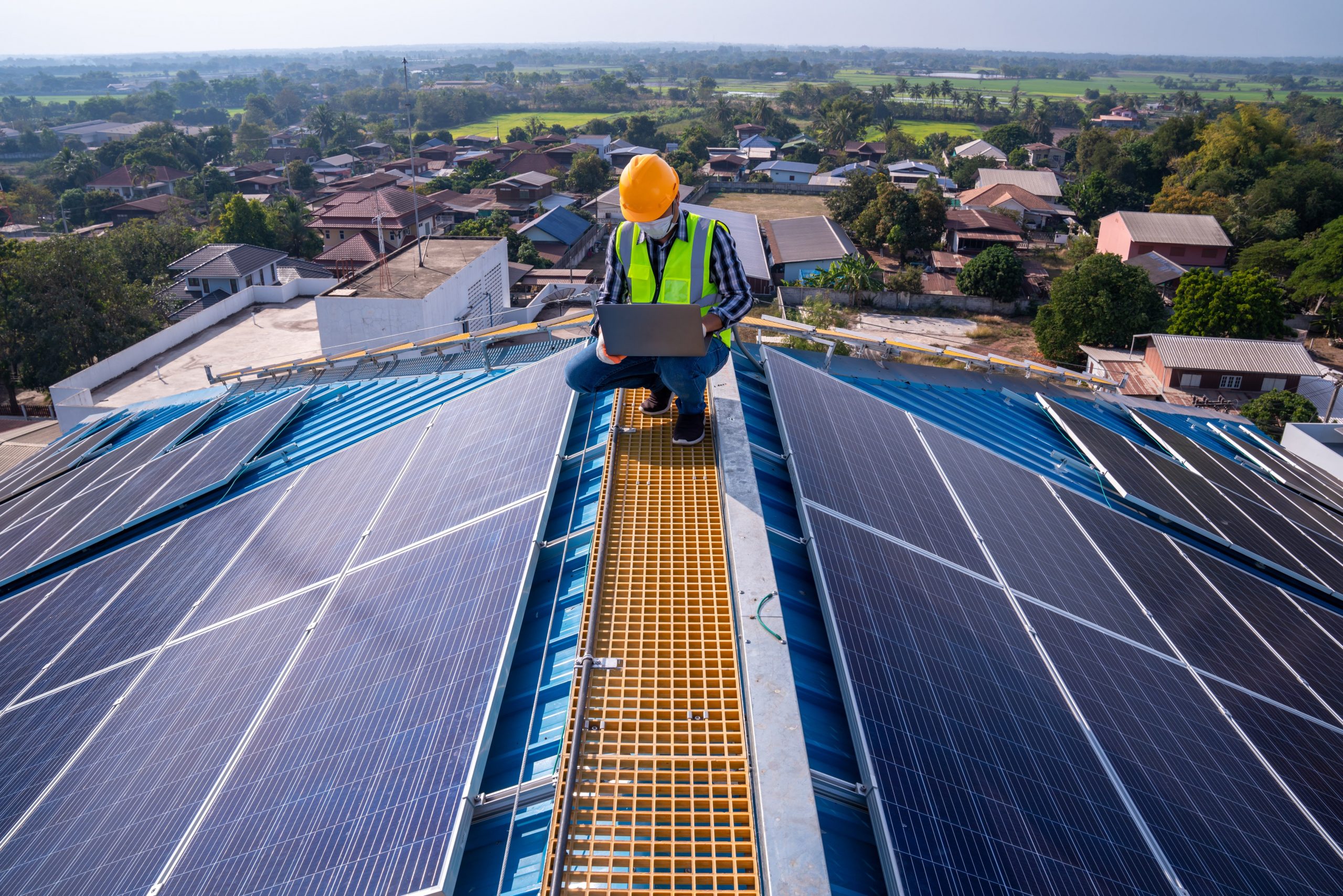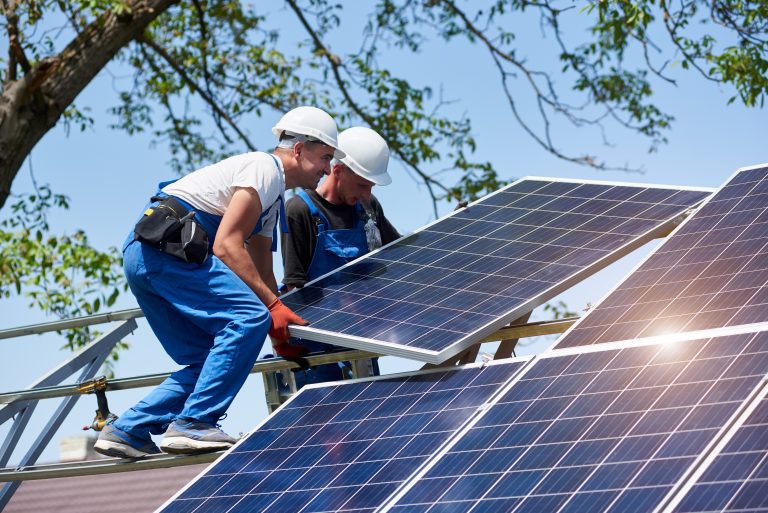It’s essential to think of energy efficiency for the long-term when it comes to environmental preservation, savings, and your reputation as a homeowner or business owner. One of the most sustainable energy solutions nowadays is solar energy. But are solar panels worth it? What are the important considerations before installation them? Read below to find the answer to this common solar energy question.
Are Solar Panels Worth It?
The short answer is yes. With solar panel installation, your home or business establishment becomes energy-efficient, increasing your solar panels return on investment.
If you reside in Australia, you know there’s rapid growth in solar installations in the residential and commercial sectors. The country is known for its abundant sunshine, an ideal location for solar energy production.
You can expect a high upfront cost when installing solar panels. However, they’re a long-term investment that can yield substantial savings over the system’s lifespan, typically 25 to 30 years or more. Additionally, using solar energy reduces reliance on traditional grid electricity and helps reduce greenhouse gas emissions, contributing to a more sustainable future.
While solar panels may continue generating electricity beyond their warranty period, their efficiency may gradually decline. Hence, solar system maintenance is a big thing in Australia.
Considerations For Your Solar Panel
Make your home or business energy-efficient by taking advantage of solar power. But before you install solar panels, it’s important to consider the following:
1. Your Energy Needs
You need to determine your energy expenditure before choosing the right type of solar panel system for your home or business. Also, it is best to consider the appliances, r22 refrigerator, induction, or any such appliance that can make a diffrence. The different types of solar panels include monocrystalline (for high performance and efficiency), polycrystalline (cheap but lower performance and efficiency), and thin-film (more flexible and portable than the first two).
If you have limited space on your roof or property for solar panel installation, monocrystalline panels can be a good choice. They have a higher energy efficiency and power output per square foot compared to other panel types, allowing you to generate more electricity in a smaller area.
On the other hand, if you’re looking for a more affordable solar panel option, polycrystalline panels can be a suitable choice. Their manufacturing process is simpler and less expensive compared to monocrystalline panels, resulting in a lower cost per watt. But polycrystalline panels may require slightly more surface area compared to the other to generate the same amount of electricity.
Thin-film panels generally have better performance in low-light conditions compared to crystalline panels. They can provide a more integrated and seamless look if you prioritize your solar installation’s visual appearance.
2. Roof’s Condition
Your roof is a major investment of every homeowner. If you want a sustainable home, make sure to check the condition of your roof, which is also crucial in solar panel installation. How old is your roof? Before you plan to install solar panels, it’s important to know if you need to repair or replace your old roof. A damaged roof can’t hold the solar panels sturdily.
Therefore, you should resolve roofing problems first before the installation to protect your investment. In addition, you won’t spend money on dismantling the work and putting the roof up again any time soon due to replacing the damaged roof.
3. Your Roof’s Warranty
Aside from the condition of your roof, you also need to check its warranty. Compare your roof’s warranty to your solar panels. The maintenance cost increases if the warranty of your panels is longer than your roof. You need to make sure the warranty of both is close to each other to maximize your savings.
4. Your Roof’s Characteristics

Why do you want to install solar panels in the first place? The installation provides plenty of benefits, especially the long-term utility bill savings you can get. But you won’t maximize your investment if your roof is outdated and weak.
Like solar panels, your roof is also a great investment, safeguarding your home or business against harsh environmental elements. Hence, it’s also essential to consider the characteristics of your roof before installing solar panels such as the following:
- Shape
Roofs come in many sizes and shapes. Before solar panel installation, you need to make sure there’s adequate space in your roof to accommodate the panels.
- Slope
The slope of your roofing system is another important consideration. Because solar panels need a specific placement to generate energy, the ideal placement is either facing south or west. You can determine the best solar placement direction for you by discussing this matter with a solar panel professional.
- Weight
Every roofing system has a specific weight capacity. If the solar panels are too heavy for your roof, then the entire system may collapse. You can avoid this life-threatening situation by contacting a professional to find out if additional support is needed to ensure safe solar panel installation.
5. Water Drainage
It’s advisable to ensure proper water drainage before installing solar panels. The rainwater should run down into the roof and to the gutters properly. Installing wire and racking of solar panels can prevent the good flow of water drainage.
That’s why professional installers should ensure that the solar equipment doesn’t move the water in an opposite direction to prevent leaks and other potential problems. Otherwise, drainage problems would require the repair and removal of solar panels.
6. Grid Connection
In addition to considering the shape and structure of your roof, it’s also important to consider the grid connection to the solar power system. If you want to connect with your local utility, you need to ask the following to your contractor and utility provider:
- How long do the grid and solar system connections take?
- Do I need to pay any fees?
- How will I be credited for the supply of electricity?
- When will I be credited for the generated electricity?
Conclusion
The condition of your roof, including its size and shape, are important considerations before you install solar panels.
Looking for professional solar panel installation services Birmingham? Our experienced team can help! Contact us today to learn more about our affordable and efficient solutions.
You also need to consider the water drainage and grid connection. Installing solar panels in your home or business is worth it. You can enjoy the long-term savings you can get from solar energy as well as help make the world a better place with its sustainability and eco-friendliness.

